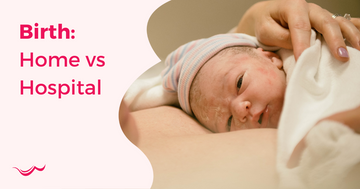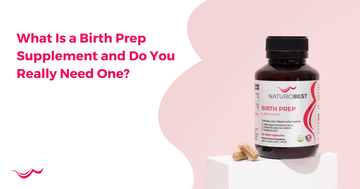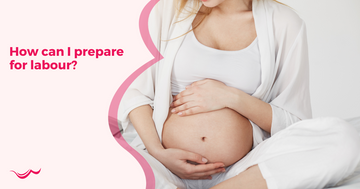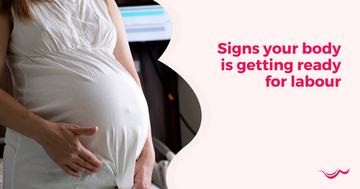Home Birth vs Hospital Birth: How to Choose
by Nikki Warren on May 07, 2024

Planning your birth is an exciting and special time. Many women spend a lot of time deciding whether to have a hospital birth or home birth. We recommend you consider all options and their pros and cons to make your birth plan. This will help you decide on the plan that is right for you.
Learn more about the risks and benefits of each type of birth to help you and your health care team make the best choice:
Key Takeaways:
- Learn about types of birth to make an informed decision with your health care providers.
- Home birth can be a safe option for women with low-risk pregnancies.
- Know the risk factors, pros and cons of both home and hospital births.
- Know that neither type of birth is ‘right ‘or ‘wrong’.
Is it better to have a baby at home or hospital?
A hospital birth is when a baby is born in a hospital setting. In a hospital birth, care is provided to the birthing mother and labour progress is monitored by support staff. These health professionals tend to include your obstetrician, nurse, midwife, and doctor. The mother also has access to medical pain management, such as epidurals, and medical interventions such as inductions or caesarean sections.
A home birth is when labour and birth take place at home, rather than in a hospital or birthing centre. It commonly involves the assistance of midwives, and sometimes doulas, who provide care and support to the labouring mother.
Some women may choose to have a home birth for any number of reasons including:
- Desire less medical intervention for their birth
- Would like to give birth in comfortable, familiar surroundings
- Dissatisfaction with hospital care
- Feel more in control of their birthing process
- Lack of access to a local hospital
- Religious beliefs
Are home births as safe as hospital births?
Some parents have fear about the safety of home births compared to hospital births. However, it is important to know that all types of birth carry a degree of risk, including hospital births.
Ask your health care provider to provide you with the necessary information and assess current safety research to help you decide what's best for your unique situation. Your health care provider will listen to your wishes, concerns and answer any questions you may have about your birth. Some women also want to know more about how to cope with labour pain naturally if they do choose to have a home birth. If your chosen midwife has prescribing rights, you will be able to access gas as a pain relief option at home and will also have access to syntocinon in the event of a postpartum haemorrhage. If your baby requires oxygen at birth, this can also be provided at home.
A study by Janssen et al. (2009), found that planned home birth attended by a registered midwife was associated with low and similar rates of perinatal death and reduced rates of obstetric interventions and other adverse perinatal outcomes compared with planned hospital birth attended by a doctor or midwife.
The Birth Experience Study (BESt) in 2021, found that over 85% of comments left by women in Australia were related to making different decisions regarding their next birth choices. Most concerningly women often blamed themselves for not being more informed. Women realised the benefits of continuity of care with a midwife. Many women also desired a vaginal birth as well as better access to birthing at home.
Home is a safe option for low risk births and healthy pregnancies. Therefore, it is important that you are aware of the link between preconception care and pregnancy outcome.
Rosannah Blackwood’s birth story of her NaturoBest baby boy, highlights the positive experiences women have with a hospital birth as well. She shared “I am so glad for modern medicine meaning that we have a healthy, happy baby at the end of it all”.
What are the disadvantages of giving birth at home?
Giving birth is a profound and deeply personal experience. The decision of where to give birth is a crucial aspect of the journey. While many expectant parents consider the option of a home birth, it's important to acknowledge that it might not be a good idea for everyone.
Women with medical conditions such as preeclampsia or type 1 diabetes may require more medical care to minimise risk. Hospitals are equipped with facilities and medical personnel to provide an extra layer of safety for mother and baby.
Previous pregnancy complications or a history of complicated deliveries may influence your doctor's recommendation. Previous caesarean section or issues with postpartum haemorrhage could necessitate the advanced medical resources and maternity care available in a hospital setting.
Your healthcare professional may not recommend a home birth or transfer you to the hospital during labour for various reasons such as:
- You have had multiple or previous C-sections.
- You have high blood pressure.
- You want to use pain medications (e.g. epidural)
- The baby is not in an optimal position (e.g. breech).
- The baby is showing signs of distress before delivery.
- Labour isn’t progressing.
- Meconium is found in your amniotic fluid (may indicate distress).
- Complications arise (placental abruption or umbilical cord prolapse).
Potential problems with having a home birth:
- You could still be transferred to the hospital in the event of an emergency.
- Transportation time to the hospital could impact you or your baby in an emergency.
- You may not be able to receive medical intervention quickly if you need it.
- It requires in depth preparation and planning.
It is important to discuss your situation and wishes with your healthcare provider. They will help make an assessment regarding risks to you or your baby. This will help you make an informed decision or management plan.
Is a planned hospital birth better than a planned home birth?
Embracing the journey of childbirth is a unique and empowering experience, with no one-size-fits-all approach. Whether you choose the reassuring walls of a hospital or the familiar comforts of home, the key is to feel not just prepared but genuinely supported in your decision.
Each birthing setting comes with its own set of advantages and considerations, and making the right choice is about tailoring it to fit your individual needs and preferences, in consultation with your healthcare provider. We recommend that you gain a wealth of insights by engaging in conversations with your healthcare provider, doula, midwife, and obstetrician and other mothers. Their wisdom will be helpful, guiding you along in your special journey.




